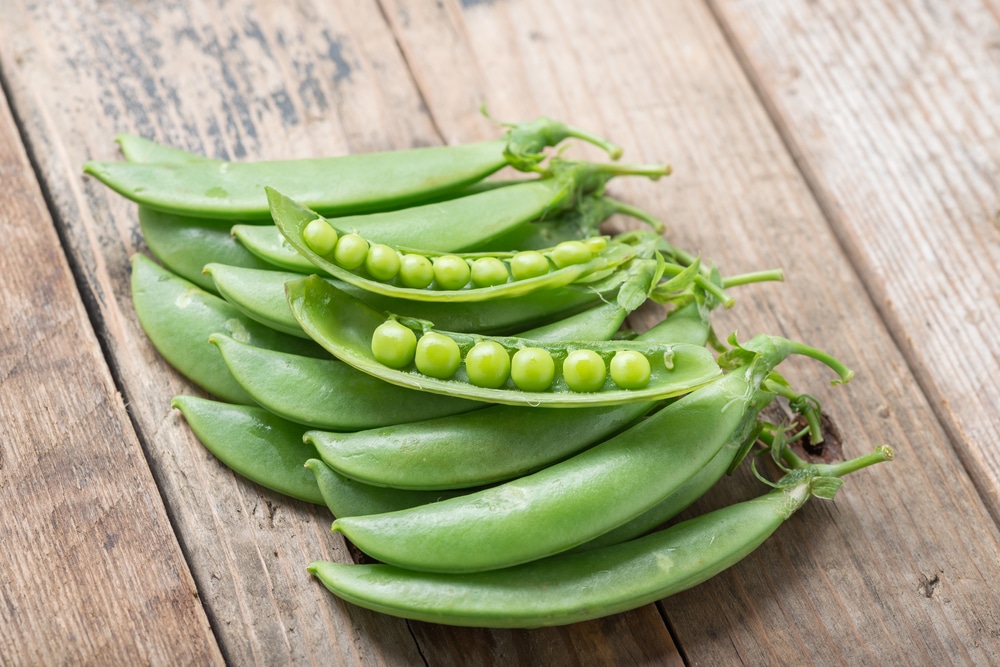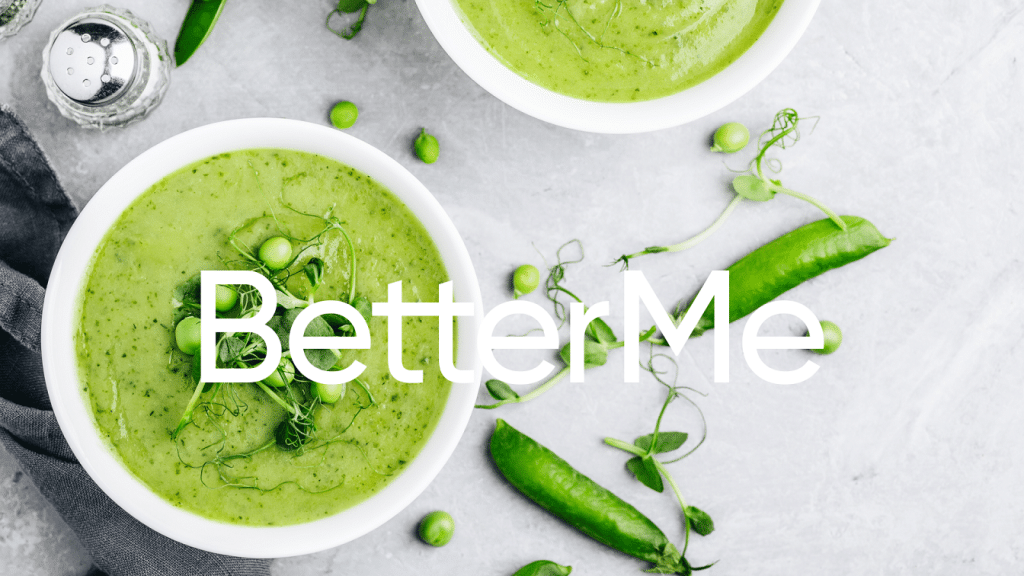Snow peas are members of the legume family, and they’re related to other plants like green beans, soybeans, and lentils. In fact, snow peas taste very similar to green beans in many ways. They are also called sugar snap peas and are eaten pod and all, and they taste sweet. In this article, we will take a detailed look at snow peas, including their health benefits, calories, and their effect on our body. Other than that, we will also examine the side effects of eating snow peas, so you can decide whether or not to enjoy them in your diet plan.
Get your personalized
meal plan!
Snow Peas Calories And Nutrients
According to nutrition information provided by the USDA, a one cup serving (65 g) of whole, raw snow peas provides 27 calories. It also contains the following nutrients (6):
- Fat: 0.1 g
- Sodium: 2.5 mg
- Carbohydrates: 4.8 g
- Fiber: 1.6 g
- Sugars: 2.5 g
- Protein: 1.8 g
- Vitamin C: 37.8 mg
- Iron: 1.3 mg
- Potassium: 126 mg
Read More: Are Bell Peppers Good For You? Nutrition And Health Benefits Of These Vegetables
Snow Peas Health Benefits
Don’t let their small stature deceive you. Snow peas are a nutritional powerhouse.
Here are some of the health benefits of this legume:
Prevent Constipation
Snow peas are a great source of fiber. Fiber is the part of plant foods that our bodies cannot digest, but it’s important for keeping bowel movements regular and preventing constipation (4).
Prevent Anemia
Iron deficiency anemia can cause weakness, fatigue, headaches, and cold hands and feet (5). Luckily, snow peas contain iron– a cup contains 1.3 mg of this vital nutrient (6).
Strengthen Bones
Calcium isn’t the only nutrient that helps strengthen bones. Snow peas also contain phosphorus. It is a mineral that’s necessary to build strong bones and teeth (3).
Fight Inflammation
Chronic inflammation is linked to heart disease, atherosclerosis, Alzheimer’s disease, and even cancer. Fortunately, snow peas are a great source of vitamin C, an antioxidant which fights free radicals that can cause damage which triggers inflammation in the body (9).
Promote Weight Loss
Snow peas are an ideal weight-loss food because they’re low in calories and high in fiber – two important aspects of any healthy diet plan.
Aid Eye Health
Vitamin A is responsible for keeping the retina healthy in your eyes (8). A serving of snow peas contains 35.1 mcg RAE of vitamin A (6).
Want to build an attention-grabbing bubble butt, blast away fat that’s stored in all the wrong places, spring-clean your diet, turn back the clock on your skin, skyrocket your self-confidence and shatter your insecurities? Check out the BetterMe app and set this plan in motion!
Snow Peas Side Effects And Interactions
Because snow peas are a legume, they may cause adverse reactions for people with allergies or sensitivities to legumes such as peanuts or soybeans (1). Additionally, some studies have shown that excessive consumption of legumes like beans and chickpeas can negatively impact mineral absorption and lead to nutritional deficiencies, although you are unlikely to be able to eat an amount of snow peas that would cause any measurable impact on mineral absorption (2). Because they have a lot of fiber, overeating them may cause bloat and indigestion, especially if you are not used to eating much fiber (7).
If you decide to eat snow peas, just do so in moderation, like anything else.
The Bottom Line
If you enjoy eating snow peas, there’s no reason not to. They are a low-calorie, protein-rich food that is a great addition to any diet. They’re also an excellent source of vitamin C and fiber, which are two very important nutrients for your overall health.
DISCLAIMER:
This article is intended for general informational purposes only and does not address individual circumstances. It is not a substitute for professional advice or help and should not be relied on to make decisions of any kind. Any action you take upon the information presented in this article is strictly at your own risk and responsibility!
SOURCES:
- A comprehensive review of legume allergy (2013, pubmed.gov)
- Are anti-nutrients harmful? (n.d., harvard.edu)
- Bones Need Both Calcium and Phosphorous (2002, webmd.com)
- Effect of dietary fiber on constipation: A meta analysis (2012, nih.gov)
- Iron Deficiency Anemia: A Common and Curable Disease (2013, nih.gov)
- Snow peas, raw (2020, usda.gov)
- Stopping or reducing dietary fiber intake reduces constipation and its associated symptoms (2012, nih.gov)
- Vitamin A (2021, nih.gov)
- Vitamin C (2021, nih.gov)
- Warfarin and Vitamin K (2020, uofmhealth.org)









